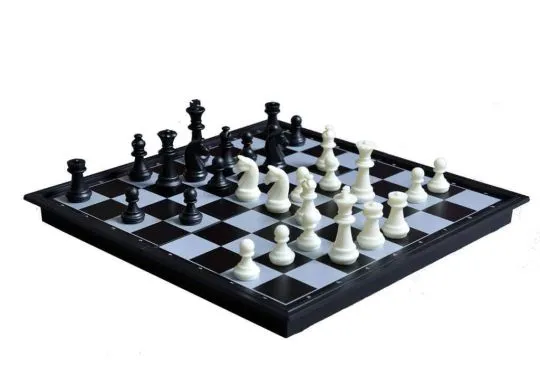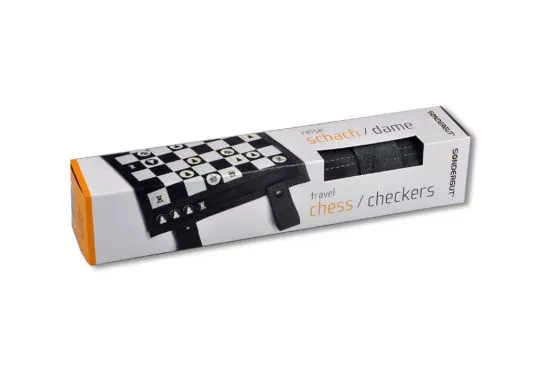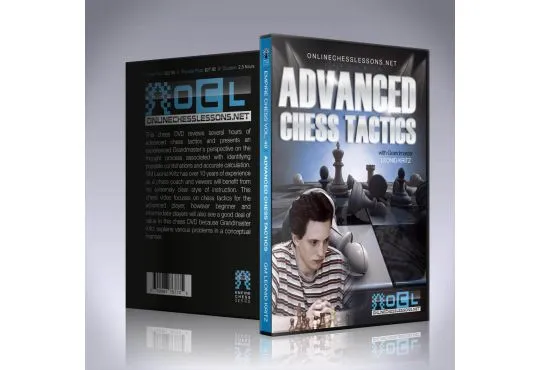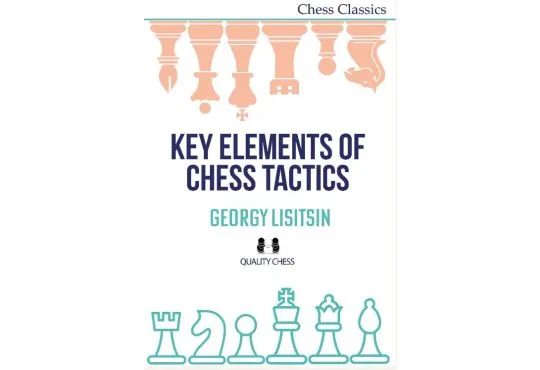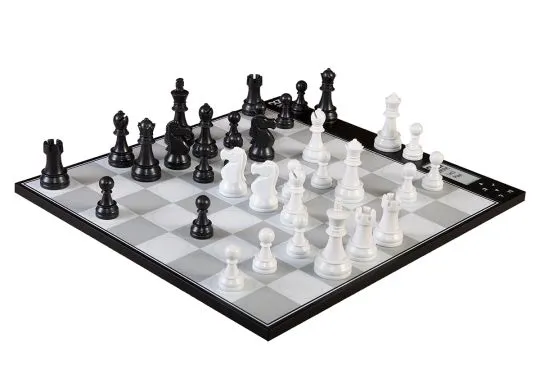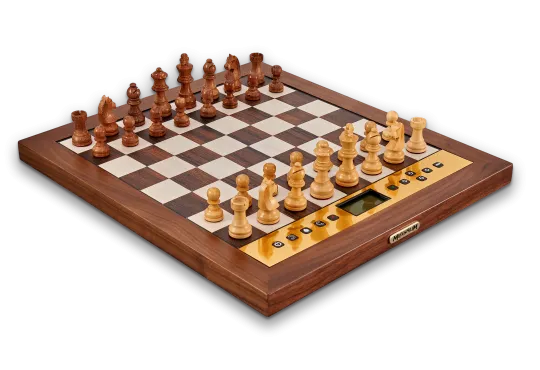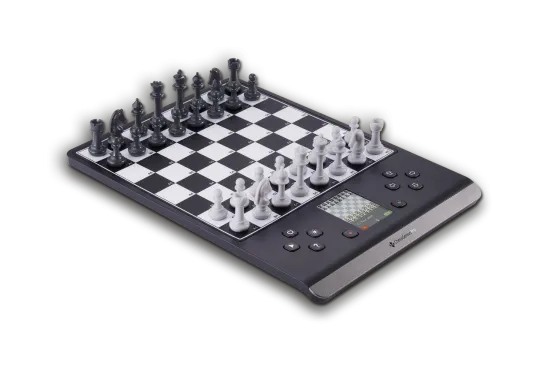Checkers and Chess: The History and Relationship Between The Games
Two names usually come up regarding strategy board games: chess and checkers. While they share the look, color, and board, these games couldn't be more different in how they are played, their depth, and the skills they demand. Chess is seen as the more complex, requiring calculated moves and long-term planning. On the other hand, checkers appear simpler but still challenge players to think ahead.
But these two games have more in common than many people think. We will explore the fascinating connections and differences between these classics, uncovering the rich history that has shaped each into what it is today. If you casually enjoy chess at a coffee shop or have been playing checkers for years, our article will help you see their differences, similarities, and relationship to one another.
Ancient Roots: Origin Stories of Chess and Checkers
The stories behind chess and checkers are as fascinating as the games themselves. Each evolved through centuries and across cultures. Despite their differences, these classics share intriguing connections, from their early forms to the boards they are played on today.
Understanding the origins of each reveals not only their unique histories but also the ways they intersected and influenced each other. Let's take a closer look at how checkers and chess developed and the common threads they share.
Checkers’ Beginnings
The game of checkers traces its roots back to an ancient board game known as Alquerque, played as early as 3,000 B.C. in Egypt. Alquerque involved a similar approach to jumping and capturing pieces, laying the foundation for modern checkers.
Over time, the game traveled through the Roman Empire and beyond, eventually transforming into Draughts during the 12th century in France. The simple, intuitive gameplay made checkers a universal favorite across cultures, adapting and spreading rapidly as it was inclusive to people of all ages and skill levels.
The Rise of Chess
Chess, on the other hand, has a distinct and equally captivating origin story. It began as Chaturanga in India around the 6th century A.D., representing elements of military strategy with pieces like elephants, chariots, and infantry. As it spread through Persia and the Islamic world, the game evolved further, eventually reaching Europe by the 10th century.
Europeans modified the rules, and chess became the strategic, symbolic game we know today, often associated with nobility and intellectual skill. This shift in perception positioned chess as a game of kings, marking it as more than just a pastime but a symbol of intellectual prowess.
Shared Influences
While the games developed independently, both share common threads. They each use an 8x8 grid, a format likely chosen for simplicity and balance. Additionally, chess and checkers focus on strategic positioning and piece movement, reflecting a universal appeal to plan, anticipate, and outmaneuver the opponent.
This shared structure has allowed both games to remain relevant and accessible in ancient courts or modern homes. Their connections highlight a fascinating evolution where even simple design choices carry enduring significance.
How the Games Connect and Diverge
Chess and checkers may seem worlds apart in complexity, but they share a common foundation. Despite their differences, both rely on a familiar 8x8 grid that offers a balanced and fair playing field. Let's look at how these classics connect and where they diverge:
| Aspect | Checkers | Chess |
| Board Similarities | Uses the same 8x8 grid, keeping the setup simple and easy to understand. This layout supports quick gameplay and makes it suitable for all ages. | Also uses the 8x8 grid to create a space where each piece has its own distinct role and strategy. The board becomes a stage for more complex maneuvers. |
| Evolution of Rules | The rules evolved to remain straightforward. The goal focuses on capturing and advancing pieces across the board, keeping the game quick and engaging. | Developed into a hierarchical game where each piece has unique movements and abilities, adding layers of strategy. The objective extends beyond mere capture, it's about outmaneuvering the opponent. |
| Simplicity vs. Complexity | It appeals to those seeking an easy-to-learn game that still demands strategic planning. Despite its simplicity, it requires anticipation and tactical positioning. | It caters to players who enjoy long-term strategy and deep thinking. Chess challenges players to plan several moves, anticipate the opponent's counterstrategies, and adapt in real time. |
Relationship Between The Games
While distinct in complexity, chess, and checkers are connected by a shared focus on strategy and anticipation that transcends their differences. Both games rely on the same board, providing a consistent foundation that players have engaged with for centuries. This shared grid has helped each game retain relevance, offering a space where tactical thinking takes center stage, even as the approach to strategy varies.
Tactical Thinking and Strategic Depth
Checkers invite players to make quick, decisive moves, rewarding those who can anticipate their opponent’s next step and react swiftly. Its simplicity allows players to focus on positioning and capturing, creating quick thinking that appeals to people of all ages.
Chess, with its deeper layers, builds on these principles but expands them. The diverse capabilities of its pieces mean that players must think several moves ahead, considering multiple possibilities and outcomes, which creates a more immersive challenge.
Cultural Influence and Cross-Impact
Despite their different levels of complexity, both games have significantly impacted each other’s evolution. Chess has drawn on the easy nature of checkers, inspiring simpler variations that appeal to casual players. At the same time, checkers competitions and tournaments mirror chess's organized, competitive spirit, pushing players to refine their skills and strategies. This cross-influence shows that these games are not isolated experiences, they contribute to a shared culture that values strategy, adaptability, and skill development.
Complementary Experiences: Enduring Appeal
Over the years, their complementary nature has allowed chess and checkers to endure and thrive. While checkers provide a quick and easy way to learn tactical play, chess offers a deeper, more involved experience for those seeking extended strategic engagement. By providing distinct yet interconnected paths, these games create a broader appreciation for tactical skills, showing how the enjoyment of one can deepen the understanding and love for the other.
Modern Play: How Chess and Checkers Have Evolved Online
Technology has given chess and checkers new life, expanding their reach and introducing them to a global audience. From casual mobile apps to sophisticated AI engines, these games have adapted to online play, making them easy and enjoyable for everyone who is interested.

Online Platforms and Communities
Online platforms have significantly boosted the popularity of both games. Chess, in particular, has seen a surge thanks to sites like Chess.com and Lichess, which host tournaments, provide training options, and allow players to compete with others worldwide at any time. These platforms have turned chess into a social experience where players can connect, play, and discuss strategies on a global scale.
Checkers, meanwhile, has focused on a more casual approach through mobile apps and web-based games. This makes it easy for anyone to jump into a quick match during a break or commute. It keeps checkers fresh, providing people with quick, strategic play without the long-time commitment chess sometimes requires.
Learning for All Skill Levels
The internet has opened up vast learning opportunities for players of every level. Beginners can find checkers, tutorials, and straightforward guides that break down rules and strategies, making it a welcoming starting point for newcomers. For chess enthusiasts, an extensive array of resources is available, from YouTube channels that explain openings and tactics to courses led by grandmasters.
These resources make learning both games easier and more interactive than ever, with visual aids, interactive lessons, and active community discussions that add to the learning experience.
AI and Chess Engines vs. Checkers Bots
Advanced engines can analyze millions of positions in seconds, offering players ways to study and develop strategies. Both casual players and professionals use these engines. They break down games, uncover new tactics, and refine their methods, constantly improving their skills.
Checkers has also integrated AI, though in a simpler way. Bots designed for checkers simulate human opponents, providing practice for all levels of play. While they may not be as advanced as chess engines. These bots offer a valuable way for players to sharpen their strategies and enjoy competitive play without needing a human opponent.
Checkers and Chess: Final thoughts
Chess and checkers have evolved, adapting to modern platforms while staying true to their strategic roots. Their shared history and differences continue to captivate players worldwide. For chess enthusiasts, House of Staunton offers expertly crafted chess sets that honor the game's legacy and depth. These sets are designed for those who seek the elegance and strategic challenge of chess, providing an opportunity to enjoy a timeless classic in different themes, styles, and materials.
Frequently Asked Questions
Yes, chess and checkers are related because both are strategic board games played on an eight-by-eight grid, but they have different rules and objectives.
No, chess is not a copy of checkers. While both games share the same board, they evolved independently. Chess originated in India in the 6th century, while checkers (draughts) can be traced back 5,000 years to Mesopotamia. Chess focuses on complex strategies and unique piece movements, while checkers are more straightforward in mechanics.
Yes, Chess is considered more complex than Checkers due to its rules, chess pieces, and strategic depth.
Yes, since both use an identical board, you can play Checkers on the same board you play chess.


